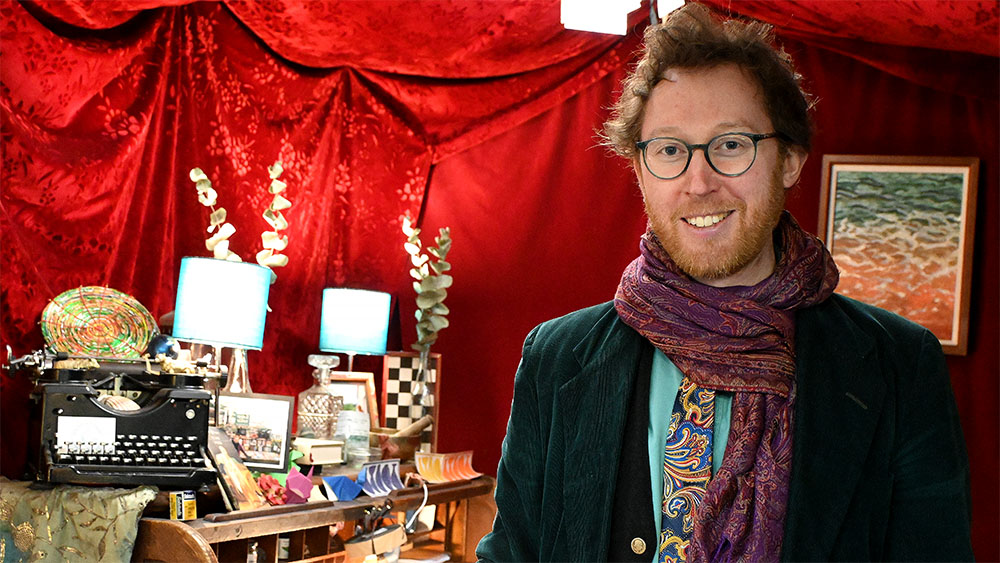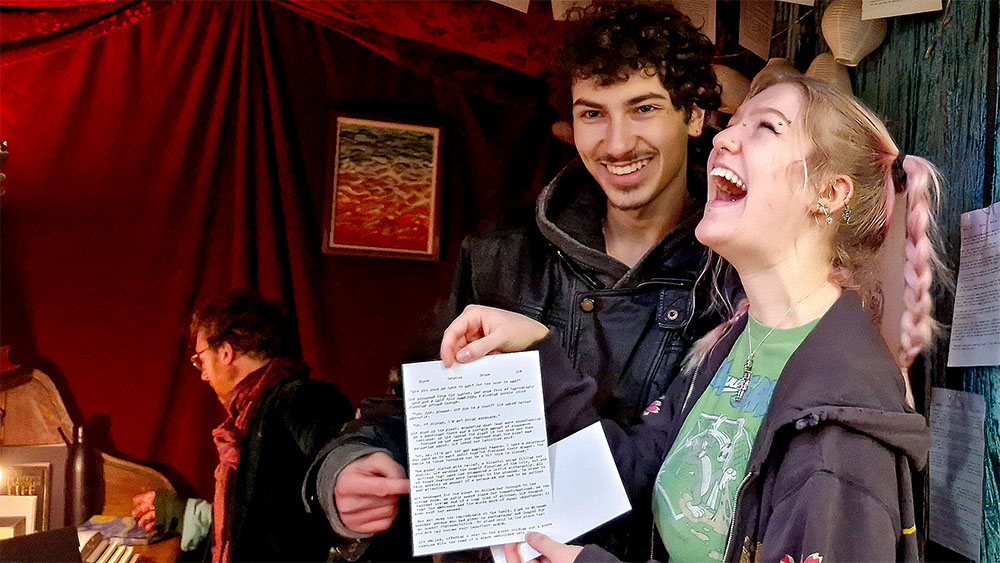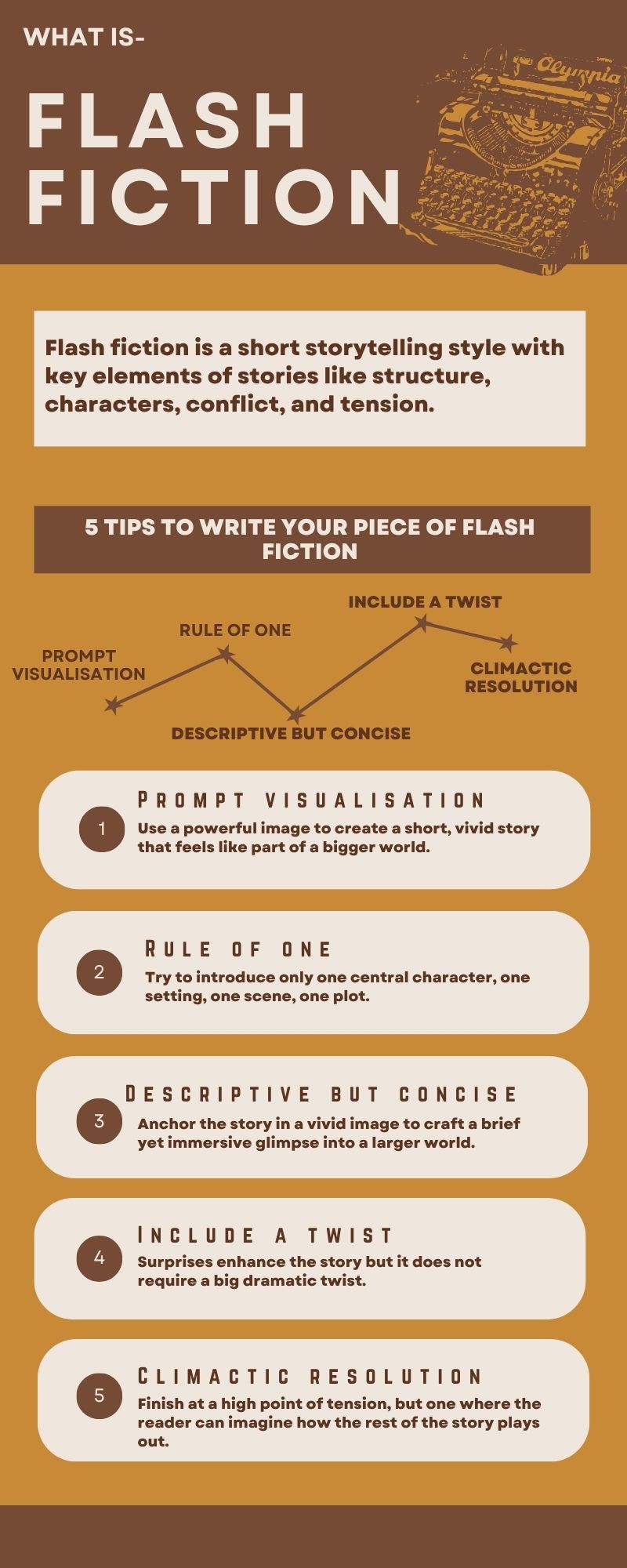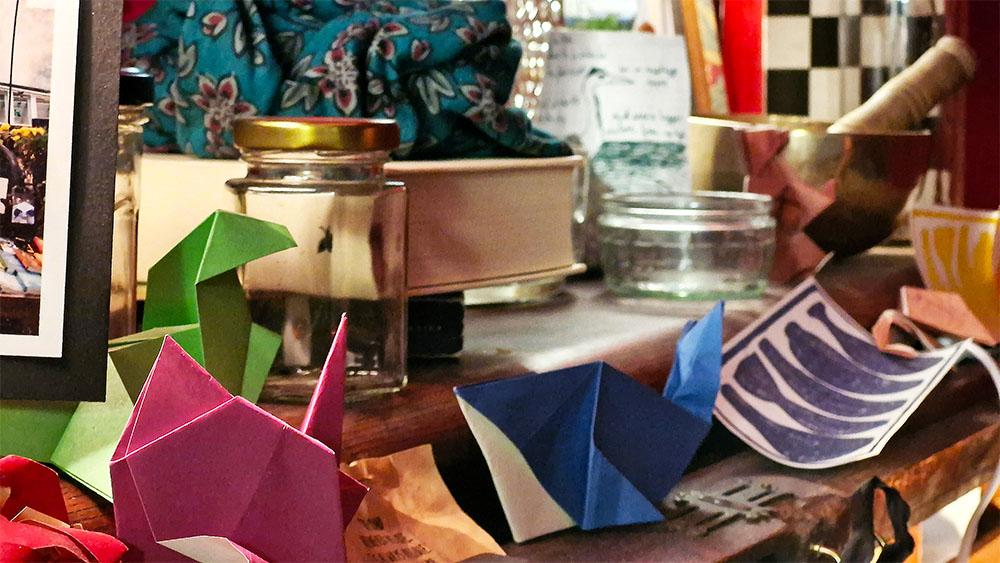In a world where isolation and digital bubbles are becoming the norm, how does storyteller Adam E. Holton revive curiosity and human connections with his typewriter and a little bit of whimsy?

The steady clack-clack of the typewriter fills the stall, each strike sharp with purpose. Adam’s face is focused, brows furrowed, and eyes intent, yet a faint smile hints at quiet joy. His fingers move with practised rhythm, the pace quickening as thoughts pour onto the page. Every keystroke draws him deeper into a world he loves. His entire being seems wrapped up in the act of creation, as if each keystroke brings him closer to a world he deeply cherishes.
Just three words, one name and five minutes to create magic. It is like Adam Holton’s little superpower. He writes a short story tailored to capture the unique essence of the person before him. It’s a fleeting yet unforgettable experience.
Adam, a public typist, explained that his creative process stems from human interactions and years of people-watching. He finds talking to people and hearing their stories inspiring.
“Depending on the kind of story I’m being told, I feel a deep relief sometimes, a sense of connection to a stranger. That is a special kind of magic, especially when it is person-to-person. When it is in the world that we share together, not through a medium,” says Adam.

“I have been fascinated by the storytelling nature of humans since I was a child, and it is something I’ve always wanted to be part of, either as a listener or as a storyteller. It’s been a lifelong fascination, and the reality of doing it this way, with the typewriter, is a really fun evolution of that love and fascination for stories,” says Adam.
As a child, Adam shared a bunk bed with his sister. As he lay in the upper bunk, he would create stories of worlds far away for them to travel through, until his sister felt calm enough to sleep.
“I was always writing things down, creating stories out of what I did with the dog when I was a child, or where we went together,” says Adam. “It helped me understand the world around me, and my imagination was always creating stuff or making things up in my head. It helped me make sense of the world.”

Adam Holton has built a brand around the name ‘FoundOutThere’, referring to his inspirations for his stories that are found out in the world. He says, “If I’m sitting here and I’m improvising stories for people, my imagination is out there beyond my head. So, the ideas are found out there. When I was younger, I was adopted. I was ‘found out there’ by my parents. It just seems like a lovely way to tie together everything I’m doing.”
Late last summer, while searching for a copy of Candide by Voltaire as a gift for his partner, Sophie, a walk-through Cardiff led him to a secondhand bookshop in the market. Holding a book about optimism, he wondered if there was space for him to write stories for others. When he called the market manager, she laughed in recognition, recalling a past encounter. With that unexpected exchange, his vision of crafting typewritten stories for strangers during the winter found its home in Cardiff Market.
“This gives me faith that anywhere there is a possibility for interaction, and something unexpected. It makes me quite hopeful sometimes,” says Adam.

He travels around the world with just two suitcases and his typewriter. He wants to tell stories of the people around him to those who are curious. “The hope is that this place gives people a bit of entertainment, and an opportunity for them to follow their curiosity and sit down ‘outside the world’ for a bit,” says Adam.
He finds it upsetting when compared to AI generators. “I have not stolen from the works of millions of people they have created throughout a lifetime. I have not exploited people,” says Adam. “I am not having a tremendously damaging impact on the planet. I am not trying to define the vast possibility of what the future could be into a single thing.”
While difficult, he embraces these emotions and views such moments as opportunities for important discussions, even if others do not realise the offence.
“Wherever I end up, I find a way to make a space where I can hear other people’s stories,” says Adam. While he lived in the Austrian mountains, he had set up a storytelling night where people came once a month. “There would be a theme for the evening and people could share true stories from their lives,” says Adam. He finds that these interactions not just allow him to listen to people’s stories but also help him find inspiration for his stories.

Research shows people are retreating into individual digital bubbles, a trend Forbes dubbed the “Great Retreat.” As real-world connections fade, replaced by online interactions, Adam aims to reignite human connections.
“Curiosity is definitely one of my chief motivators,” says Adam. “I look for examples of people being curious. The whole situation with the typewriter is only possible when people are curious. People want spaces to express that. I think people want to be curious. They want to participate; they want to be involved in things. Like, please let’s have a chat in a way that isn’t alienating.”
Adam’s work is based on a desire to bring people back together, not just with each other, but with the world around them. In his stories, he tries to stir up a sense of awe that most people feel is missing from life. His writing is not so much about passing on a particular message as about evoking an emotion.
“I don’t know what people want from the stories. For every person, it is different. But one thing I keep coming back to is that people want to see something wonderful, or they want to experience something a little bit different or something unexpected. So that’s why a lot of the stories, or in my soul, I try to keep this light and whimsy, this sense of awe, interaction with what exists in a way that isn’t exploitative or violent or demanding,” says Adam.

In a fast-changing world, storytelling remains essential, offering identity, belonging, and meaning. It preserves traditions while helping us navigate the new, bridging differences and deepening connections. Whether through books, films, or everyday conversations, stories shape our shared experience, proving that even amid uncertainty, our need for them endures.
“I want to find examples of how people resolve conflict that doesn’t need violence. I want to find laughter. I love hearing jokes or being told funny stories. I look for that in so many places,” says Adam.
